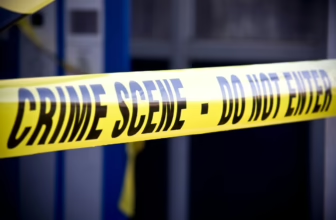If you're living with CPTSD, being productive while managing symptoms and healing from trauma can be challenging — but these tips can help.
Surviving childhood trauma for those with CPTSD is a major accomplishment, but this comes at a steep cost. These symptoms impact every area of life. It’s difficult to treat, and it takes years to repair. To top it all off, adult life has additional challenges, such as earning money to heal and rebuild.
Many people with CPTSD are stuck in a catch-22 situation. They’ve got to earn more to heal more and they’ve got to heal more to earn more.
Resources for CPTSD are improving, but trauma-informed care is still prohibitively expensive and difficult to access. Specialists who lack trauma-informed training and experience risk re-traumatizing their patients.
It takes a lot of hard work, careful planning, and strategy to climb out of this poverty trap. It gets bleak, but there’s hope.
Climbing out of that trap is not a straightforward task, it’s painful, exhausting, and terrifying. This is a formidable challenge, but you can take steps can to improve the odds. These improvements are minor at first, but they accumulate if you maintain consistency as much as possible.
Everyone’s juggling work, family, goals, obligations, and personal needs, but CPTSD symptoms add about another dozen or more balls to the mix.
There will be days when all the balls drop. During those moments, it can seem pointless to gather them back up again. However, it’s worth it to pick the balls back up, one at a time, and go again.
People with CPTSD need to juggle their symptoms and day-to-day life, one step at a time. Improved productivity leads to more resources to work with, and this will take time, endurance, and patience. However, this is the way out of the catch-22 situation.
Here are five ways people with CPTSD can improve their productivity and overall quality of life.
1. Focus on constructive tasks that you can do to manage your CPTSD in the present moment. If nothing else, prioritize nervous system re-regulation and self-care.
With CPTSD, the mind is hyper-focused on pain from the past or fear of the future. This is counterproductive.
With practice, people with CPTSD can gently redirect their focus to the present moment. They will probably need to do this multiple times a day. This is difficult, but there are ways to do it.
Mindfulness skills help keep you in the present moment, but for very active and raw trauma symptoms, this can be overwhelming or even re-traumatizing.
The psychotherapy Somatic Experiencing teaches a gentle reorientation technique where you slowly scan your surroundings to lower your activation levels. Animals in the wild do this to re-regulate.
Anna Runkle, the Crappy Childhood Fairy, teaches a simple daily writing technique on her YouTube channel. This practice shaves off fear and resentment and helps you re-regulate. Katie Byron’s The Work also helps with this.
EFT, TRE, and Polyvagal Theory exercises are simple to learn and quick to implement. Our EFT course teaches the science behind the technique and how to use it to improve your mental health. You will function better when you digest the stress with these techniques.
Once you are better regulated, focus on minor tasks like tidying up the house or making a modest to-do list, with only 5–7 items daily.
2. To become more productive in life with CPTSD, go on an “attention diet” and stick with it religiously.
You should treat attention as a currency. With the internet and media, there’s exponentially more competition for it. Hundreds of things beg for attention, and most of those things are not worth paying attention to.
Browsing random sites as a distraction can waste hours of time, which can worsen symptoms like depression and anxiety. Comparing lives on social media or doom-scrolling through news articles is not worth your time.
Pornography gives temporary relief. However, not only does it drain your time, but it also changes the neuropathways in your brain, making it harder to stay regulated and heal. My partner and I created a porn addiction recovery course on Udemy that teaches mindfulness skills and provides a toolbox of techniques.
Video games can train some cognitive skills, like hand-eye coordination, but they can be addictive too. If you struggle with a gaming addiction, we created a video game addiction recovery course as well.
There are days when symptoms are so severe that the best strategy is to distract yourself with uplifting, comforting, and optimistic content. However, this becomes an endless trap if you neglect healing work and self-care.
Distracting yourself isn’t ideal for long-term results. Attention is a precious and finite resource. There’s a reason marketing is a billion-dollar industry. Attention frugality is critical here.
Invest that attention into learning more about how to manage CPTSD symptoms and ways to improve your circumstances. The absolute best way to invest your attention is to focus on self-development.
3. Take steps to cultivate curiosity but temper it with healthy, evidence-based skepticism.
They do not train many mental health specialists to identify and treat CPTSD. Because of this, it’s common for people with CPTSD to be misdiagnosed with bipolar, schizoaffective disorder, borderline personality disorder, and so on.
This wouldn’t be problematic if the treatment for these conditions improved CPTSD, but often this isn’t the case. Those who live with CPTSD need to widen their search for ways to heal and improve. Improving CPTSD symptoms takes an interdisciplinary approach. Even with better information out there, this journey is long and meandering.
Curiosity is a psychological nutrient and cultivating it helps broaden your options, reverse nervous system dysregulation, and improve your symptoms.
However, there are questionable and exploitative practitioners out there, especially in the spirituality niches. You need to research and consider every option for healing thoroughly, but you can find effective options in unexpected places.
4. Figure out what your top five core values are in life and gravitate towards them in small steps.
Life with CPTSD can feel directionless if you don't know what you stand for. Childhood trauma makes it difficult to know yourself as an individual because you grew up around people who didn’t know you. They only knew what they projected onto you. When you peel away the layers they painted onto you, you see where you really stand as a person.
Sitting down and figuring out your top five core values in life will give you the direction you need. Focusing on anything else outside of those values is an inefficient use of your limited resources. These core values are lighthouses in the fog that you sail towards. Even when the sea is rough and threatening to capsize you, those values will light the way.
Once you know those core five values, you’ll take an important step towards never being lost in open water again. This is your map towards a life of purpose, so you choose pain with purpose, actions with purpose, so you live life purposefully from moment to moment, day by day.
5. Create small, short-term goals that steer you toward your top five core values, and build a realistic daily schedule that works with your skills and challenges as someone with CPTSD.
With your core values as your guide, you can structure your day and build towards that light. Start small, sustainability matters more than haste. Self-compassion is a learned skill for those with CPTSD and you deserve it.
Teach yourself how to see your own worth. This is a gentle process. It wouldn’t be rational or kind to rage at a person who’s struggling to walk in physical therapy. Your self-worth is in rehab. Give yourself support, as if your self-worth was struggling to walk again.
Life with CPTSD can be devastating some days, but there’s hope. CPTSD is a lifelong condition, but there are ways to improve and live a good life. These symptoms impact every area of life, but they don’t have to take over your life. It doesn’t take away your values or your worth as a human being.
Implementing these tips will help you live a worthwhile life despite the struggle.
University of Michigan Ann Arbor graduate, mental health advocate and coach. Just trying make sense of my life and hopefully these experiences help others too.







